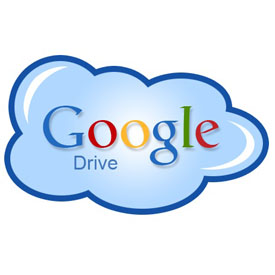 There has been a lot of confusion when Google unveiled its Google Drive service. (CloudTimes was one of the first to announce its launch.) As the company convinces the public to try its new offering, there have been concerns about the underlying terms and conditions. The current understanding of these terms means that Google Inc. will claim intellectual property on any content such as photos and personal documents which people store at Google Drive. The phrase about users granting Google “a worldwide license to use, host, store, reproduce, modify, create derivative works (such as those resulting from translations, adaptations, or other changes we make so that you content works better with our Services), communicate, publish, publicly perform, publicly display and distribute such content” has brought about a lot of confusion.
There has been a lot of confusion when Google unveiled its Google Drive service. (CloudTimes was one of the first to announce its launch.) As the company convinces the public to try its new offering, there have been concerns about the underlying terms and conditions. The current understanding of these terms means that Google Inc. will claim intellectual property on any content such as photos and personal documents which people store at Google Drive. The phrase about users granting Google “a worldwide license to use, host, store, reproduce, modify, create derivative works (such as those resulting from translations, adaptations, or other changes we make so that you content works better with our Services), communicate, publish, publicly perform, publicly display and distribute such content” has brought about a lot of confusion.
People are alarmed by the idea that Google Drive will take possession of intellectual property rights when users store documents with the service. Even the 3rd largest newspaper in the country, the New York Times, reportedly sent notice to its newsroom employees not to store files on the new Google Drive service until they fully understand how Google Drive works and the issues on intellectual property are resolved.
Google made an announcement that its terms of service is a standard legal jargon which provides Google Inc. the licensing rights it requires to offer the user requested services. The license is needed by the company to “host, store (and) reproduce” the data files. According to Corynne McSherry, a lawyer experienced with intellectual property, the confusion is good before a lot of people now read cautiously rules regarding Internet services before they start using a service like Google Drive. It can also make people think about other security breaches and privacy abuses before they store their data elsewhere on the internet.
The confusion could have been avoided in Google came up with a more straightforward terms of service rather than use legal jargons which confuses even legal experts. In Google’s disclosure, the company claims that intellectual property rights of contents stored in Google Drive are owned by the users and not by Google Inc.
Actually, most of Google’s services have the same terms of service since the first day of March of this year. The one-size-fits-all terms of service is implemented by Google in order to make its guidelines simple and easy to understand. In fact, Google is not the only internet company which has that terms of service. Microsoft’s SkyDrive and Dropbox also have the same licensing agreement with regards to content. Just like Google, the two companies also specify in their terms of service that the users retain intellectual property on their content.